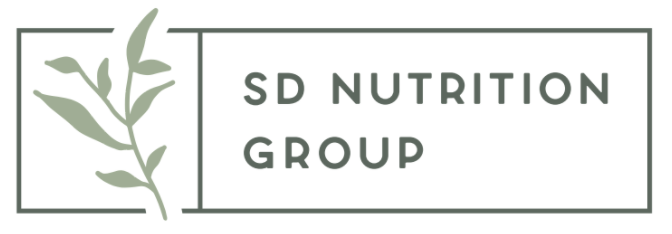Hunger Cues & The Hunger-Fullness Scale
Early on in eating disorder recovery, it is very common to not experience normal hunger/fullness cues. It’s also very common to have a lack of normal hunger/fullness cues or feel like you can’t trust those cues if you’re a chronic dieter or have been deep in diet culture for a long time.
A big part of intuitive eating is learning how to trust your innate hunger cues again and respond appropriately to them. The truth is that a dieting body is a starving body, and the effects of dieting are extremely similar to the starvation state. Our need for energy (food) is so primal and essential that if we do not give our bodies enough, our bodies find ways to compensate. Your body and brain just want to keep you alive! Diet culture makes hunger seem like the enemy or something to overcome with “willpower”, but the truth is that hunger is your body communicating a vital need- energy (food)! Seemingly uncontrollable hunger or feeling out of control around food in the beginning stages of intuitive eating often reflects years of food deprivation.
When you first start practicing intuitive eating, there may be a very real fear that you won’t stop eating. Know that that’s ok, and the more consistently you honor your hunger, and less scary and urgent the hunger will become. Being an intuitive eater means you’ve made the decision to practice trusting your body, instead of diet rules. Since this is new territory, you may ask yourself, “how do I know if I’m hungry?” Let’s review some of the signs of hunger.
Hunger isn’t always an obvious rumbling in the stomach. It can also present as:
A feeling of emptiness in the stomach area
Dizziness, feeling faint, or light-headedness
Headache
Nausea
Irritability or mood swings, “hanger”
Lack of concentration
Fatigue
Increasing thoughts about food
In the beginning stages of learning to trust your hunger cues again, you may not feel anything until you get to the more extreme signs of hunger (dizziness, nausea, potentially even fainting). Ultimately you will be able to recognize the more subtle signs of hunger (food starts sounding appealing, maybe a slight rumbling in the stomach). As a general rule of thumb, you don’t want to go more than a maximum of 5 hours without eating. This is about the longest amount of time your body can maintain normal blood sugar levels, and dropping blood sugar is what cues those really unpleasant, extreme symptoms of hunger.
A really valuable tool in learning to reconnect with your hunger and fullness cues is the hunger-fullness scale. It looks like this:
These numbers are just a guide, not a rule. They may not fit your own experiences with hunger. As you get more practice tuning into your own hunger, you may want to personalize your own hunger-fullness scale with your own individual signs and symptoms of hunger.
The more regularly you try to tune into and honor your hunger/fullness cues, the more reliable they become. It’s a feedback loop. Our bodies are amazingly good at telling us what they need. Start paying attention to how you usually go about your day and how hunger/fullness fits into that. Sometimes you may need to eat every hour, and some days you may go a full 3 hours without noticing an interest in food. Hunger/fullness levels can vary for a number of reasons (activity level, stress, sleep, what you ate earlier in the day or even yesterday, etc.). It’s normal and ok for hunger to look different from day to day.**
A note on self-care: intuitive eating is all about interoceptive awareness- an awareness of our inner body sensations. In order to better get to know yourself and your body’s sensations and needs, it’s important that your basic self-care needs are being met. It’s really hard to listen to what your body is telling you if you’re overly tired, stressed, have a to-do list that’s 10 miles long, or never make time for pleasure and relaxation. It can be helpful to do a quick run-down on areas of self-care that might need more attention. And remember- eating in response to hunger is a form of self-care!
**If you have been chronically dieting, restricting, or are in recovery from an eating disorder, it’s important to work with a dietitian to determine if using the hunger-fullness scale is right for you. The priority is to always eat consistent meals and to make sure you are eating enough calories and macronutrients (carbs, proteins, and fats).
Where do you notice hunger in your body? How do you practice tuning into your own hunger cues and honoring them? Tell us in the comments!

